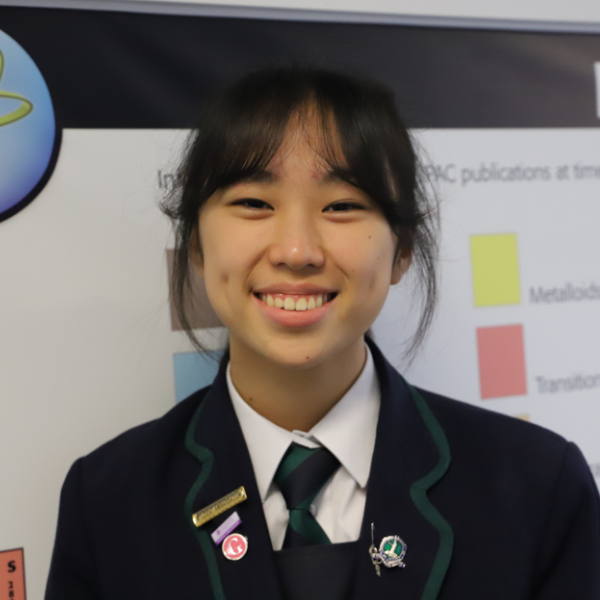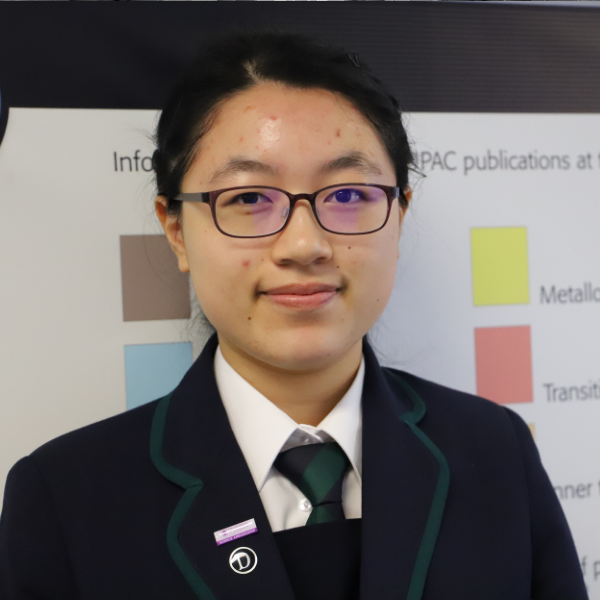
Over the Term 2 holidays, Year 11 students Michelle Lian and Marissa Chow attended the Professor Harry Messel International Science School (ISS) program with the University of Sydney. ISS is a five-day program ordinarily hosted at the University of Sydney in NSW; however, this year was held online due to COVID-19 travel restrictions. Michelle and Marissa were among 100 students from across Australia selected based on academic merit and aptitude to participate in the program. The girls listened to lectures and participated in hands-on workshops from experienced professors – ranging from an introduction to the multiverse by Professor Geraint Lewis to Dr Karl Kruszelnicki’s passionate presentation on the usefulness of sperm whale oil for uranium nuclear bombs.
Michelle and Marissa spoke to us about their experience and how they believe it will benefit them in their studies.
What have you gained from the ISS program?
Michelle: Not only did I gain invaluable knowledge from leading experts in their respective fields, but I was also exposed to science that is not accessible in the high school classroom, subsequently opening my eyes to the future possibilities.
Throughout ISS, I met and formed friendships with like-minded students, each possessing a burning passion for science despite their different backgrounds, which has further inspired me to pursue STEM as a career.
I most enjoyed experiencing a wide range of science areas, which has made me more curious and more open to new experiences.

Marissa: In the virtual lab tours, we got to see the equipment used in cutting-edge robotics, the creation and testing of solar cells, and protein engineering. We were divided into groups of about twenty students for the workshops, where we conducted hands-on activities to explore various concepts in the realms of physics, maths, chemistry, and the life sciences. We also attended a sharing session by a panel of ISS alumni who were keen to share their choices, opportunities, and career trajectories since their own ISS experience. It was interesting to learn about the diversity of the career paths followed by these alumni, from training to be a doctor to undertaking a research fellowship overseas.
What have you have enjoyed most about the experience?
Michelle: While we were able to listen to many lectures from many scientific experts, I most enjoyed Dr Micah Goldwater’s talk on ‘The Psychology of Misinformation’. His discussion of human behaviours was highly engaging and linked to an extremely topical subject due to the pandemic. He explained multiple concepts such as the ‘Illusion of Explanatory Depth’, which is the catalyst of misinformation. For example, if you are asked if you know how a car works, many people would say yes but fail to explain it in great detail. We are conditioned to believe that we know how objects operate since we can both a) successfully interact with it (e.g. drive the car) and b) someone else knows how it works (someone made the car in the first place). Subsequently, this can begin incorrect beliefs, where people are confident in their inaccurate explanation. Surprisingly, while he concluded by asking us to always fact check our sources, the mystery theme of ISS was revealed as ‘Misinformation’. Workshops that we had done in the previous days with expert professors on proving the ‘true value of pi’ and the ‘flaws of the Second Law of Thermodynamics’ were all ironically false, therefore challenging us to critically analyse all information including from ISS themselves. I thoroughly enjoyed his informative lecture and its relevant message to us all.
Marissa: On the fourth day of the program, we were fortunate to be able to attend a special lecture on human Mars exploration by Emily Judd, an aerospace engineer at the NASA Langley Research Centre. Emily explained some key differences between Earth and Mars and gave us an overview of NASA’s first human Mars mission concept, which might occur as early as the 2030s. Something I found really interesting, which Emily mentioned, was the ‘seven minutes of terror’ concept, which refers to the dangerous landing phase during which communication delays and other problems may occur. During the Q&A session at the end, Emily answered a question related to the justification for investing effort and resources in sending people to another planet instead of focussing on solving existing problems on Earth. Her answer was incredibly thought-provoking and piqued my interest in the ethics of space exploration.
What do you see yourself pursuing after school?
Michelle: My current plan is to complete a Science degree (whether that be a Bachelor’s of Advanced Science, Bachelor of Biomedical Science etc.) before continuing to Post-Graduate Medicine, which is a field that simultaneously satisfies my passion for science and my desire to connect with the community.
Interestingly, Dr Karl responded to the question, “What advice would you give your High School self” with something that has resonated with me: “Your first degree is just the degree before your second degree.” Ultimately, the first step out of high school need not determine your life path forever and truly is only the first step before many in your journey to success
Marissa: I am interested in both the sciences and humanities and am currently considering studying a degree in Health Sciences (particularly medicine) at university. However, I am also fascinated by Digital Technology and would like to pursue further study in computing.
Read more about the ISS and how to apply at sydney.edu.au/science/industry-and-community/community-engagement/international-science-school